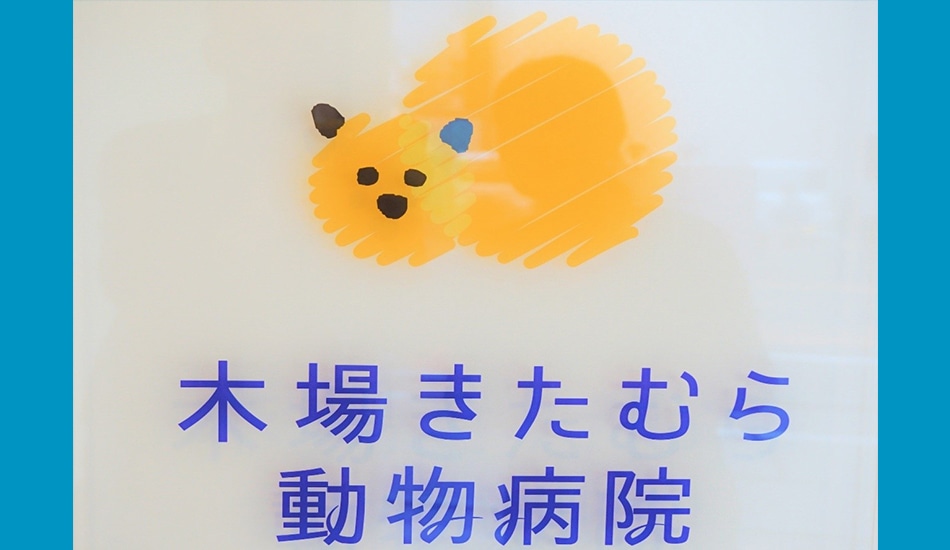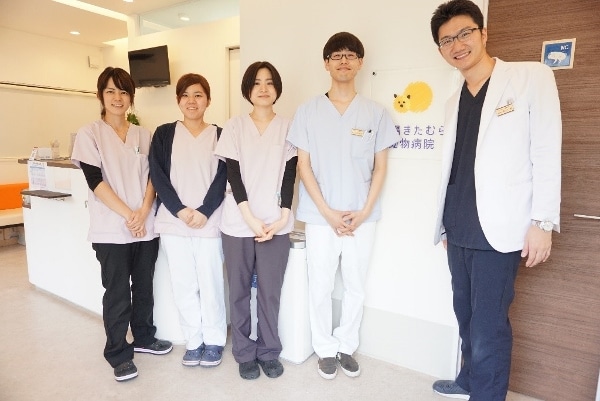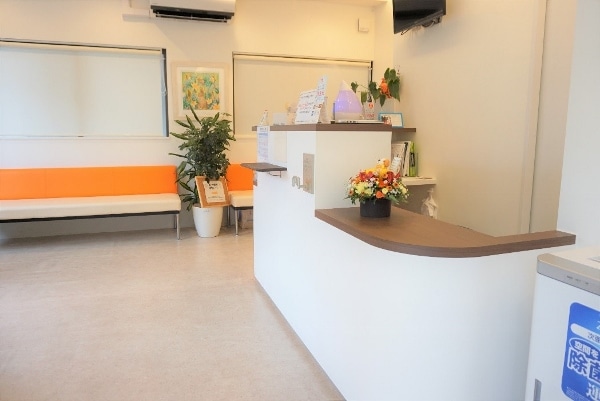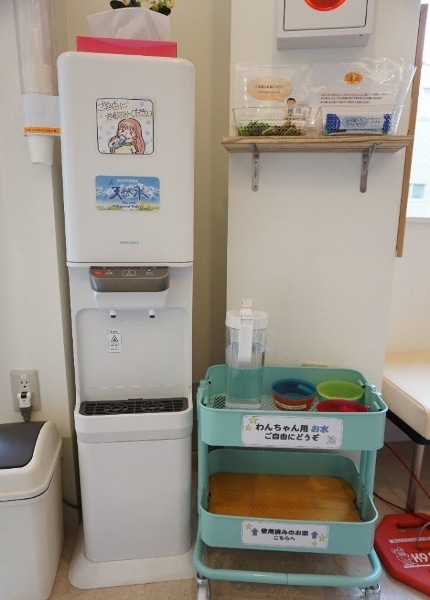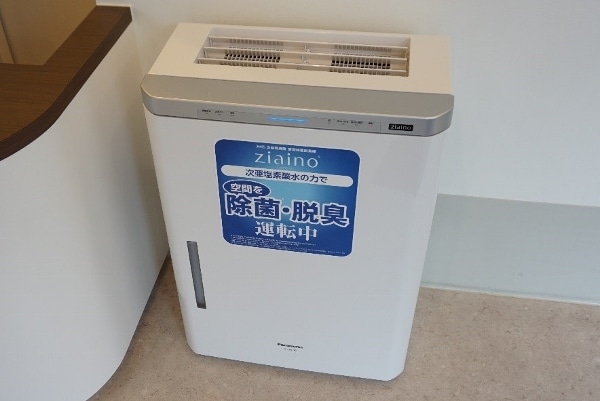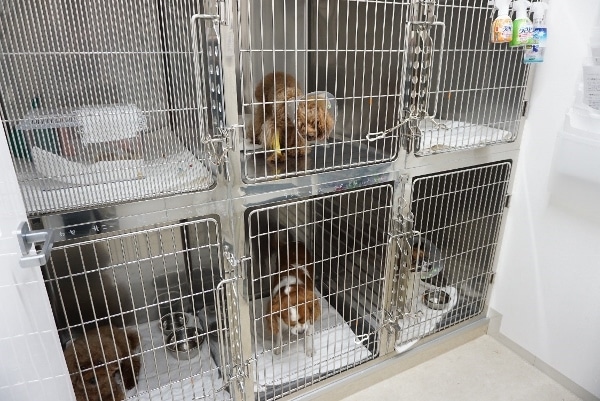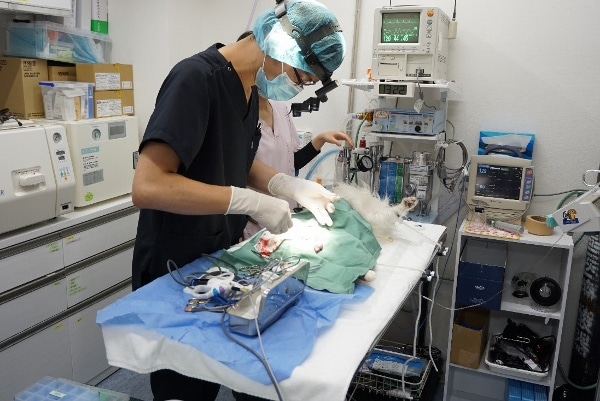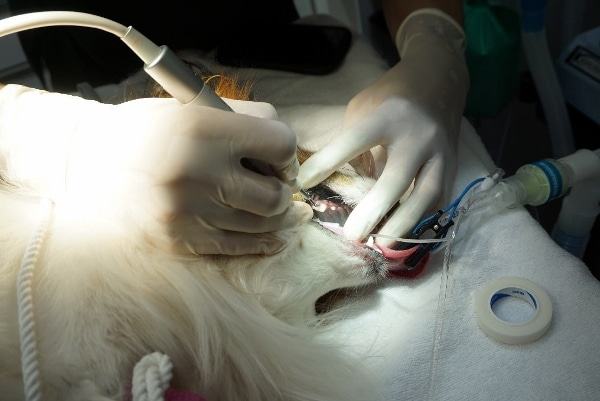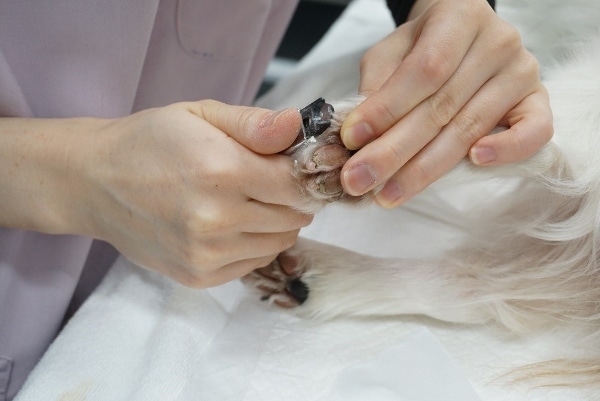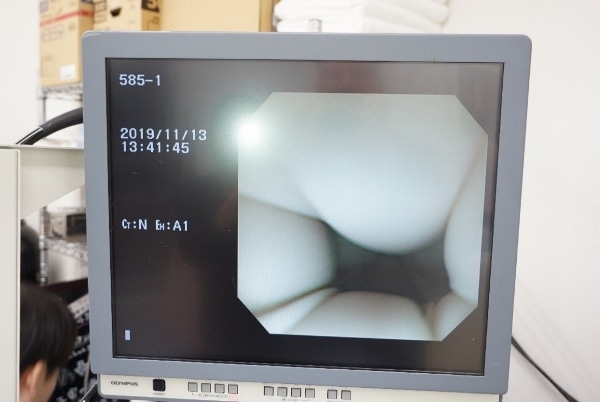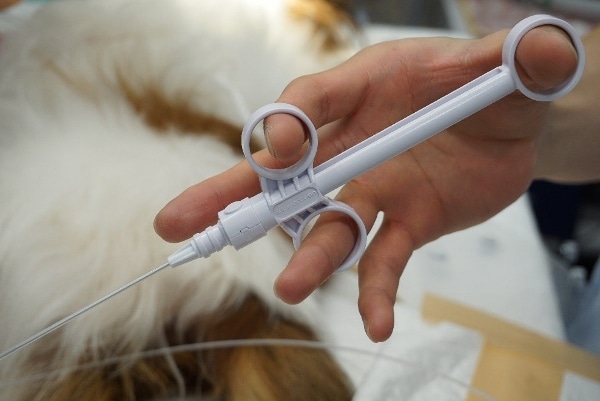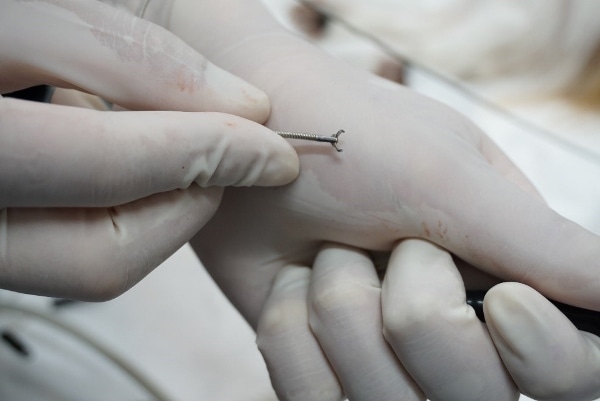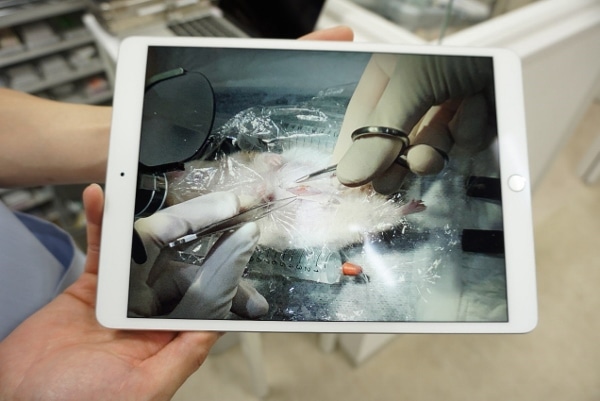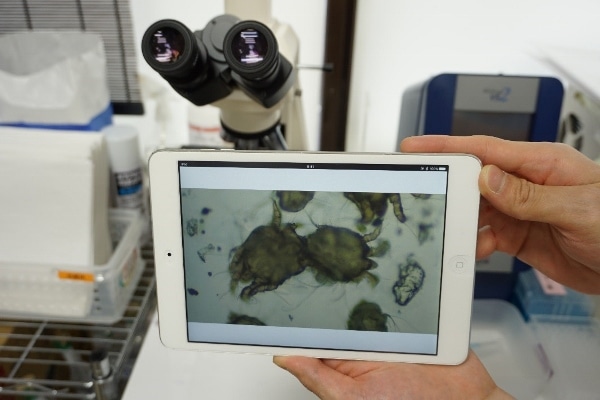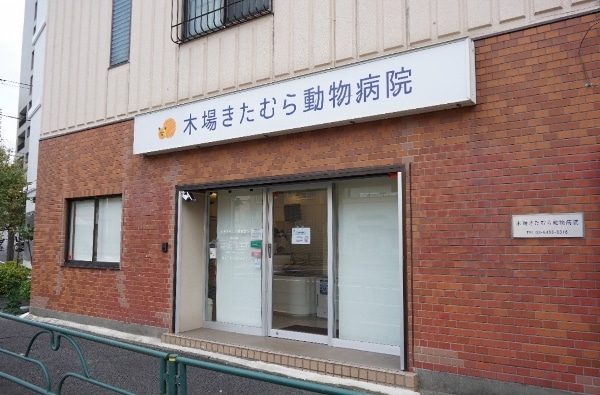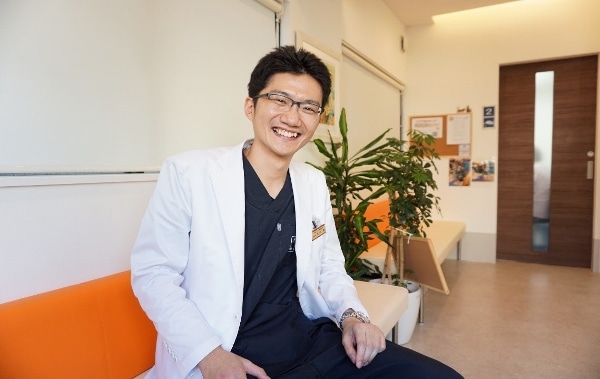Hi-tech Animal Surgery Combined with a Caring Touch
Published: November 19, 2019
For those of us with pets, it is always reassuring to know, if the need arises, that there is a place reasonably close by where skilled medical help is at hand. Kiba Kitamura Animal Hospital, run by Doctor Ryo Kitamura, and his young team of four staff, is such a place.
Doctor Kitamura chose the hospital’s location on Kasaibashi-dori Avenue in Fuyuki, because of the catchment area, which contains a growing number of apartment blocks with pet-owning residents and Kiba Park, where many people exercise their dogs.
Doctor Kitamura is a veterinary surgeon, whose enthusiasm is infectious. His connection with animals began when he was a young pet-owning boy and it was this that led to his interest in treating small animals. After graduating from six years at veterinary university he worked for five years in a major animal hospital in Kanagawa prefecture before setting up his own hospital in Koto ward in November 2018.
Kiba Kitamura Animal Hospital’s light and clean waiting area caters for both pets and their owners, providing drinking water (and tea in the case of owners) and dishes (or cups in the case of pets).
The waiting room is purified by an air filter which takes away those doggy smells which can accumulate, particularly on a wet day.
All sizes of animals are treated, although being located in Tokyo, the majority of patients tend to be smaller types of dogs and cats, but also rabbits, hamsters, hedgehogs, guinea pigs, and tortoises, plus some “exotics”. When I asked Mr. Kohei Hisashi, one of Doctor Kitamura’s assistants, what were some of the more unusual animals to recently pass through the hospital he ventured an Uparupa or Axolotl Mexican Walking Fish (a type of salamander) and a Common Marmoset monkey.
The most common ailments which Doctor Kitamura treats are skin troubles and upset tummies, or pets just seeming restless and off-colour, but being unable to talk cannot explain what is wrong. Whilst these may seem trivial to observers, they are serious and worrying for the owners, who often consider their pets to be family members. The hospital has a well-equipped consulting room where pets are examined and their problems diagnosed, and an operating theatre kitted out with some of the latest technology where surgery is performed.
The day I visited the hospital, Doctor Kitamura was busy performing an operation to neuter Bark, an aptly-named male papillon dog. During the operation, which takes about 15-20 minutes, Bark was under anaesthetic to reduce discomfort and lesson the stress involved and was oblivious to what was happening to him.
Taking advantage of this, once the surgery was complete, Doctor Kitamura took the opportunity to also clean Bark’s teeth with a high-powered jet and dental scaler; both of which would not be out of place in a dentist’s surgery,
whilst one of his assistants clipped Bark’s nails.
The operating theatre has the latest equipment, such as X-ray machine, ECG machine, and an endoscope, which is used not only for looking at an animal’s innards, but also for removing obstacles from the throat and stomach (a recent extraction involved a Belgian Bulldog and a leather pencil case!).
The hospital’s most common type of operation is the preventative surgery involving the neutering of male and female pets. Most operations carried out are completed the same day and the pet returned safely to its owner, although some major surgery may require an overnight stay for pre- or post-operation monitoring, such as surgery performed by Doctor Kitamura to remove cancerous growths.
Doctor Kitamura takes pride in his operating skills on small animals, which involves great care and precision and strong magnifying spectacles, and he documents his techniques on iPad, such as a recent successful operation conducted on a hamster (see below).
And when linked to one of the clinic’s high-powered microscopes the iPad also comes in handy for showing blood test or skin test results to a pet’s owner (the photograph below clearly shows the presence of ticks).
Where the hospital is not equipped to perform a particular operation, such as a bone break, a formal introduction will be made to a specialist surgeon at another institution.
And just like their human counterparts, animals benefit from periodic check-ups. In the case of Kiba Kitamura Animal Hospital, the check-ups include a blood test, x-ray, and ultrasonic scan to check the animal’s health. The costs of medical care for pets can build up over time and to ease the burden on owners, the clinic accepts major credit cards, and has insurance tie-ups with Anicom and Ipet, providers of cover for animals.
An early riser, Doctor Kitamura opens the hospital at 7:00 a.m. so that pet owners can make appointments to bring their loved ones in for check-ups or surgery before they head off to work. The hospital’s evening session, from 5:00 p.m. to 8:00 p.m., allows owners to bring in or pick up their pets after work. This all makes for a long day, but Doctor Kitamura claims that as he doesn’t have any hobbies, this is what he loves doing.
Doctor Kitamura is happy running this small hospital for, as he says, its size allows the flexibility and personal touch not available in a large hospital with any number of doctors and staff. The environment at Kiba Kitamura Animal Hospital reassures owners that their pets are receiving the best personal attention and it is good to know that Doctor Kitamura and his team are on hand in case their pets fall ill.
Story and photographs by Jeremy Hutchinson

